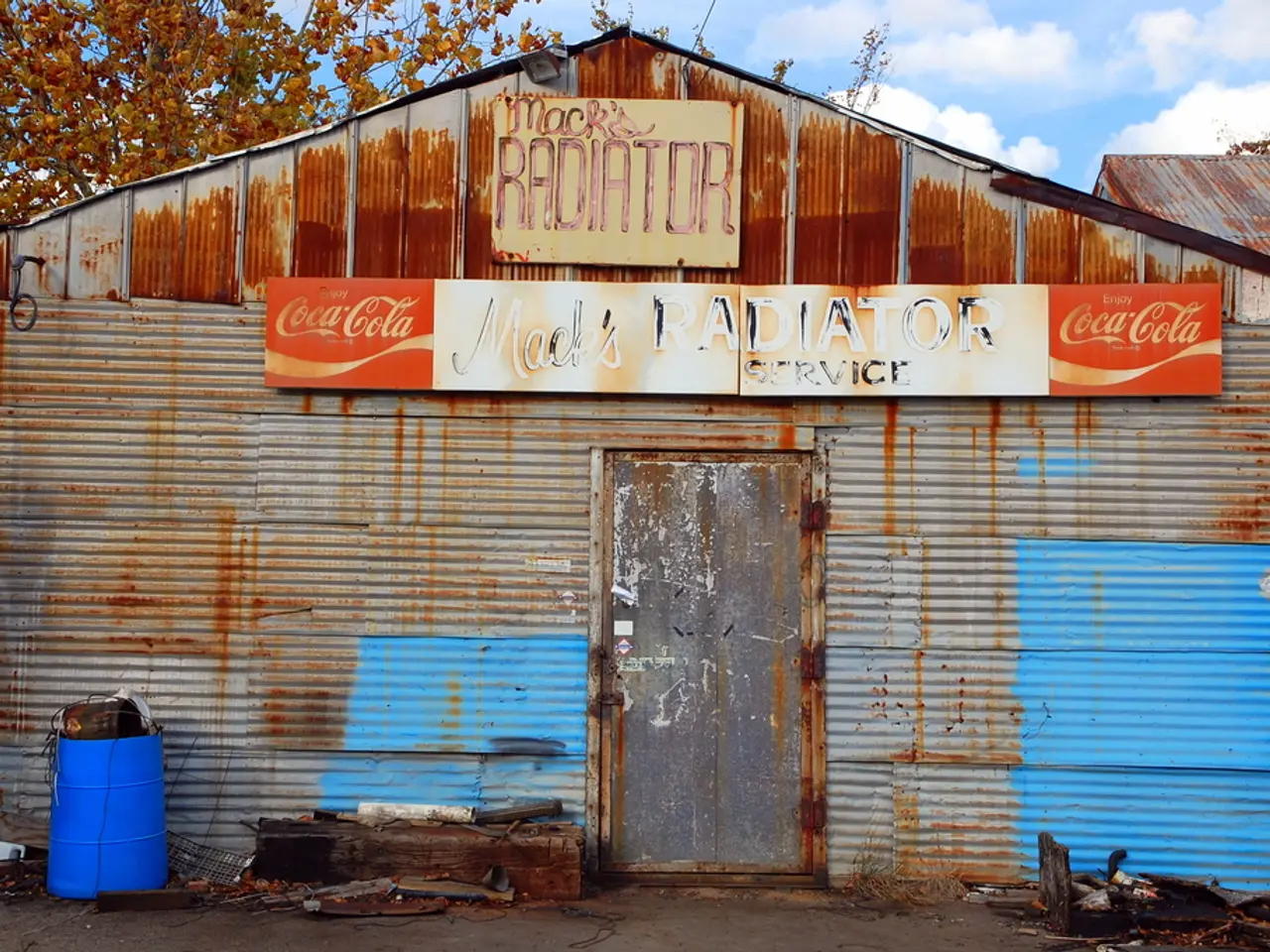Struggling with waste crisis persists in Uganda after a year
In the heart of Uganda, the city of Kampala is embarking on a significant transformation in its waste management sector. The city, which produces approximately 2,000 tons of waste daily, is striving to move away from the traditional dump-and-forget approach towards a more holistic and sustainable system.
The catalyst for this change was a tragic event. On August 9, 2024, an avalanche of rubbish from Kampala's municipal landfill in Kiteezi nearly buried Zamhall Nansamba's family and home. The disaster, which claimed the lives of 34 people and displaced 220 residents, highlighted the urgent need for better waste management infrastructure.
In response, the Kampala Capital City Authority (KCCA) immediately closed the Kiteezi landfill. The landfill, which had served Kampala since 1996 and had long exceeded its capacity, was riddled with environmental and safety hazards, including gas emissions, leachate contamination, and unstable slopes.
To address these issues, KCCA has secured a $1 million grant from Japan through UN-Habitat. This funding will be used to mitigate hazards at Kiteezi and initiate modernization efforts, starting with improving the drainage in affected areas.
Looking forward, KCCA has procured 230 hectares of land in Buyala, Mpigi District, to develop a state-of-the-art waste management and resource recovery facility. This facility will incorporate a modern, integrated approach, focusing on waste reduction, recycling, energy conversion, and safe disposal. The Buyala facility is intended to be a "game changer" for Kampala's waste sector, aiming to handle waste more sustainably and safely.
However, the path to this transformation is not without challenges. The Buyala landfill, where unsorted waste is currently being dumped, has been a subject of controversy. The National Forestry Authority has raised concerns, as the land is located in a forest reserve and is a key contributor to Lake Victoria's biodiversity ecosystem.
The Kiteezi landfill controversy has also led to several court cases, including an order for an investigation into whether the land is part of a forest reserve. The KCCA claims the land near Buyala was legally acquired from two private individuals in March.
Despite these challenges, there is a growing consensus that public education is a crucial part of the sustainable waste management solution. Improvements in facility design, waste collection, and funding are also required to overcome the legacy of past neglect and ensure comprehensive waste management improvement in Kampala.
As the city navigates this transition period, the focus is on closing hazardous legacy landfills like Kiteezi and establishing sustainable, modern waste management infrastructure centred at Buyala. This trajectory signals a shift towards a more responsible and sustainable approach to waste management in Kampala.
Sources:
- New Vision Uganda. (2024). KCCA gets $1 million grant to modernise waste management. Retrieved from https://www.newvision.co.ug/news/1654086/kcca-gets-1-million-grant-modernise-waste-management
- The Observer. (2024). Kampala to establish modern waste management facility in Buyala. Retrieved from https://observer.ug/news/headlines/67496-kampala-to-establish-modern-waste-management-facility-in-buyala
- The Independent. (2024). Kampala's waste management: Challenges and solutions. Retrieved from https://ugandanindependent.com/kampala-waste-management-challenges-solutions/
- Daily Monitor. (2024). KCCA to close Kiteezi landfill after deadly collapse. Retrieved from https://www.monitor.co.ug/news/national/KCCA-to-close-Kiteezi-landfill-after-deadly-collapse/688334-5411074-15j7q35/index.html
- The East African. (2024). Kampala's waste management: A critical review. Retrieved from https://www.theeastafrican.co.ke/business/Kampala-s-waste-management-A-critical-review/9448754-5174762-15j7q3z/index.html
- The media in Uganda has been covering the urgent need for improved waste management infrastructure in Kampala, particularly focusing on the challenges of transitioning away from traditional methods.
- The government of Uganda, through the Kampala Capital City Authority (KCCA), has recently secured funding from Japan via UN-Habitat to address the hazards at the Kiteezi landfill and modernize the city's waste management system.
- The environmental science community has expressed concerns about the potential impact on Lake Victoria's biodiversity ecosystem due to the use of land in a forest reserve for the new waste management facility in Buyala, Mpigi District.
- Stakeholders in the economic sector within Africa have expressed support for the KCCA's efforts to develop a state-of-the-art facility that focuses on waste reduction, recycling, energy conversion, and safe disposal, aiming to improve the city's waste management sustainably.
- In order to achieve comprehensive waste management improvement in Kampala, it is essential to not only focus on developing sustainable infrastructure but also to address important issues such as public education, facility design, waste collection, and securing sources of funding.




